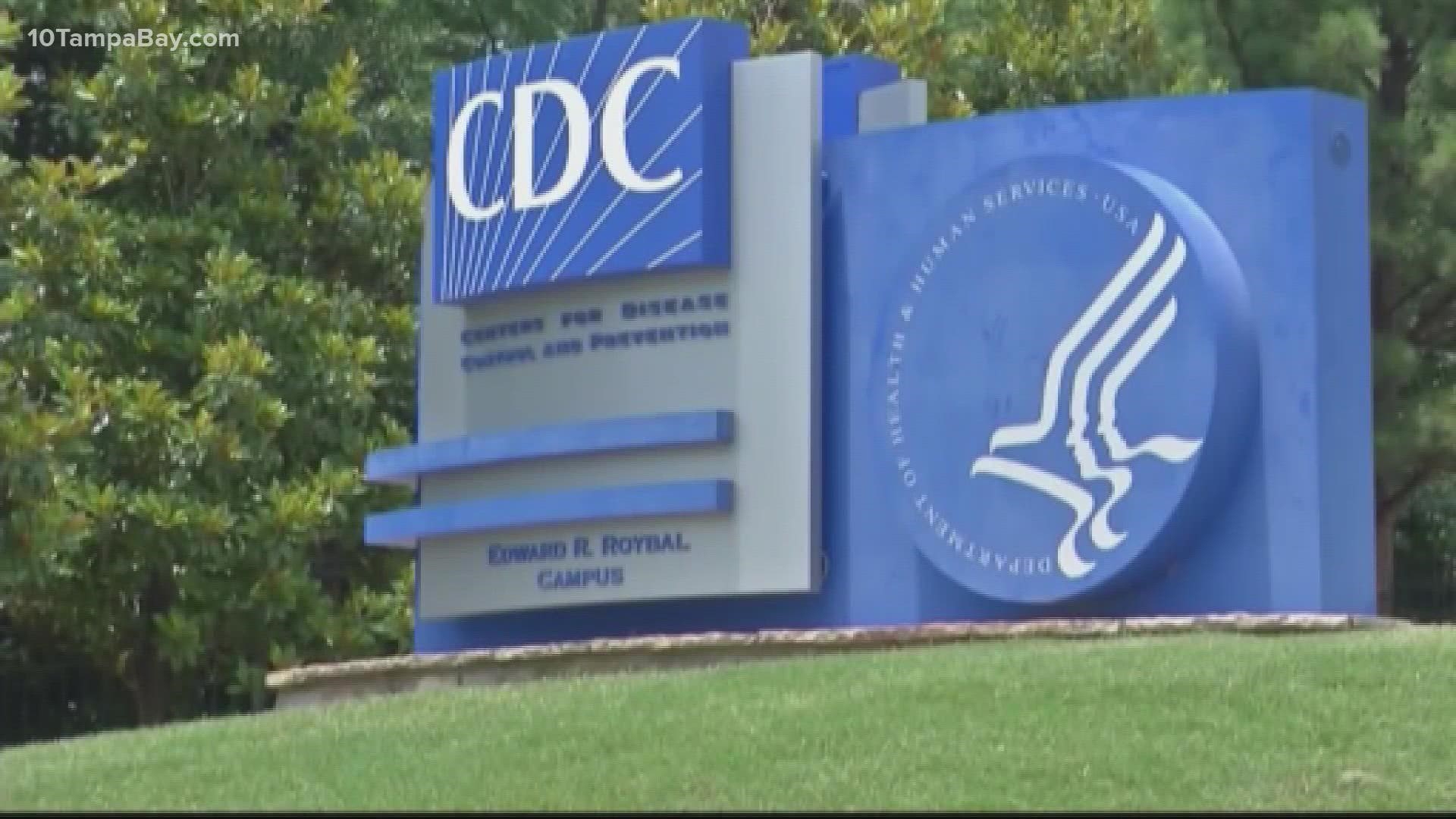TAMPA, Fla. — The Centers for Disease Control and Prevention announced new guidelines for COVID-19 exposures on Monday. The updated recommendations lessen the amount of time you need to stay home if you've had close contact with the coronavirus.
The reason for why the guidelines were changed: the CDC said people are most infectious with COVID-19 two days before and three days after symptoms develop.


In the above image, you can see a breakdown of the CDC's new guidelines updated Monday, Dec. 27. Regardless of vaccination status, if you test positive for COVID-19, it's recommended you isolate for five days. Depending on if you have symptoms, your isolation can end.
Dr. Michael Teng, a virologist at USF and the associate dean at the university's College of Medicine Internal Medicine said the reason the CDC recommends wearing a mask after isolating is so that you don't unknowingly pass it along to others.
"They still expect you to be infectious for 10 days because everything is still 10 days," Teng said. "Masking or quarantine and masks, isolating and masks. That whole length of time, it’s still 10 days.”
Guidelines differ when it comes to COVID-19 exposures for people who are vaccinated and those who are not.
If you've received a booster shot, completed your Pfizer/Moderna vaccine series within 6 months, or received the Johnson&Johnson vaccine within 2 months, you do not need to isolate, according to the CDC. Just keep an eye on your symptoms and wear a mask for 10 days.
“You should wear a mask for 10 days and test to see if you’re positive after five days," Teng said. "If you’re unvaccinated or had your primary series more than six months ago, you’re considered unvaccinated because omicron has so much immune evasion.”
When asked if the guidelines and the confusion they create will do more harm than good, Teng said it most likely won't make matters worse because of the leniency people already have toward self-isolation.
"Their messaging has been pretty poor for much of this pandemic," he said when speaking of the CDC's guideline updates. "These are overly complicated guidelines and it’s not really going to help...At least having less restrictive guidelines would mean more people follow them."
Teng said scientists do not yet know enough about the omicron variant to have a full understanding as to how long patients are contagious with it.
“This is not as scientific a decision as it could be," Teng said. "There are better ways of doing this.“

